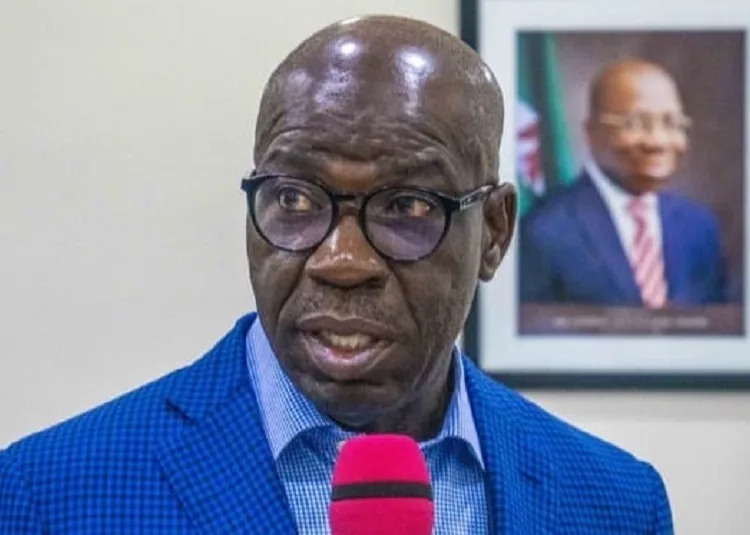The Edo State governor, Godwin Obaseki, has predicted tougher economic times for the country due to bad economic policies by the federal government, condemning the decision of the Central Bank of Nigeria (CBN) to increase the interest rate to 22.75 per cent.
The Monetary Policy Committee (MPC) of the CBN had last week raised the Monetary Policy Rate (MPR), also known as the benchmark interest rate by four hundred basis points to 22.75 percent from 18.75 per cent.
Obaseki, who spoke at the annual Edo Zone Bankers’ Committee Dinner held in Benin City, the Edo State capital, cited the potential adverse effect of the interest rate increase by the CBN on businesses and the nation’s economy, reiterating the need to focus on productive activities.
The governor said, “The next few months will be difficult because the policies rolled out by CBN will unfortunately not support growth in our economy. The interest rate is already high and jacking it up will not allow small businesses access to credit to make them grow.
“We must focus on the fundamentals which is increasing production, making sure our citizens produce what we consume and depend less on imports. Our economic and monetary policies should not be determined by exchange rate alone.
“The issue of increasing the cash reserves in a bid to tighten liquidity is going to be detrimental to our economy. We should focus on fiscal issues to enable us to grow our economy, not panic about the interest rate. Creating jobs should be a priority for us as a nation.”
Commending the role of commercial banks in societal development, Obaseki tasked the banks to come up with products and services which can assist the majority of citizens in overcoming the harsh economic realities experienced nationwide.
He however reassured that his government will continue to partner with the financial sector to cushion the effects of the present economic realities on the people of the State.
Noting that his government has over the last seven and half years undertaken several policies and programmes to reposition the State as a leading subnational in terms of GDP growth, the governor reaffirmed his government’s commitment to the welfare of the people.
He said, “We have built institutions, empowered our people with skills, and ensured they are gainfully employed and seven years after, we are ranked as one of the top States in terms of GDP growth in Nigeria.
“I am here to thank you for collaborating with us to grow the economy of Edo State in the last seven years. You have supported me to make progress this far. I thank each bank and management for taking advantage of the opportunities created in the last seven years, especially with our reforms and growth.
“In the last seven years, we have improved our security, ensuring our people walk freely as the ability to restore security gives confidence to our people who come back home to invest in our State.”
The governor further stated, “Before now, our young ones travelled at will to seek greener pastures but our administration in 2017 got the report about how desperate our youths are travelling out but we have changed the narrative.
“As I wind down as governor, I am leaving a strong State economically; agricultural production has been ramped up significantly. We are leaving a State that is the most digitally connected in Nigeria today as we have laid over 2,000km of fibre optic connection across the state and we have connected the 18 LGA and all your branches are well connected.”
“We are leaving a State that is leading in terms of electricity generation. We have Azura, contributing to the stability of the national grid. We also have Ossiomo Power. Investors are ready to support our initiative in the State. We have the Edo State Electricity Regulatory Law that will allow us to regulate those who want to generate and distribute electricity in Edo State.”
“We have laid the basis for economic growth and development in Edo State and Nigeria. We saw this difficult time coming but could not move and make the necessary decision that would have saved us, but those who ought to act to save us failed to do that, hence here we are today,” Obaseki added.





